Search Results
Search
Filter results
Advanced Filters
Your search returned 280 Solutions
-
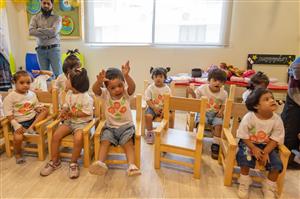
Two programmes that enable young children with Down syndrome to attend mainstream schools
KDSP, Pakistan: Created Early Preschool Experience and Inclusive Education Programs in 2017 for children with Down syndrome. By 2022, the number of children supported in mainstream school had risen to 69.
Education for Individuals with Down syndrome, Pakistan -
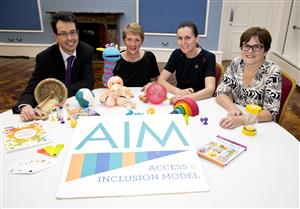
Supporting inclusion of children with disabilities in mainstream preschools
AIM is a non-binding standard for early intervention services addressing children with disabilities. In agreement with the parents, pre-schools can apply for seven different measures for implementation: These include mentoring, support equipment, targeted therapy services as well as personnel and financial assistance.
Irish Department of Children, Equality, Disability, Integration and Youth, The Access and Inclusion Model (AIM), Ireland -
EmployAble: Inclusive vocational training and workplaces for youth with disabilities in Kenya, Rwanda and Ethiopia
Young people with disabilities who are unemployed receive the necessary skills in mainstream training institutes to become employed or self-employed. More than 20 stakeholders are involved in the core implementing teams. In August 2015, 273 persons were enrolled in institutes or received in company training.
Light for the World Netherlands, Rwanda -
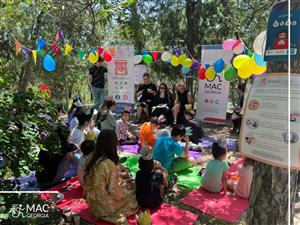
A social media platform for parents expanded to in-person support and educational events
MAC Georgia's Mshoblis Skivri, Georgia: Founded during COVID-19 to support parents of children with disabilities. By 2023, conducted over 2,500 consultations and engaged 3.45 million users via social media channels.
Mshoblis Skivri, Georgia -
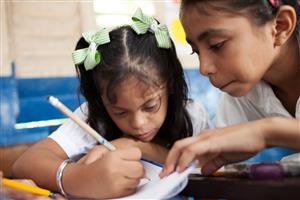
Creating communities for early childhood interventions
This project is aimed at empowering community workers of local institutions to detect disabilities and to then provide the necessary care and early intervention. Similarly, it is aimed at parents and families by providing training in basic techniques and by guiding the education of their children with disabilities.
ASOPIECAD - Association of Integrated Community Education Programmes Astrid Delleman, Nicaragua -

Three-step transition to professional life for young people with learning disabilities
Stepping Up supports students to develop skills and confidence for a better transition either to higher education or employment. The three stages are a school-based learning course to introduce the concepts of employment, working with a transition coordinator towards paid employment and aftercare-support.
ENABLE Scotland, Stepping Up, United Kingdom -

Design studio that produces playgrounds for all children and all senses
Gudgudee is a product and space design studio based in Thane, India, that designs and builds inclusive playgrounds for children with disabilities while also providing a range of indoor and outdoor playground products. The concept includes play elements such as large drums but also maintenance of executed playgrounds.
Gudgudee, Inclusive play areas for children, India -
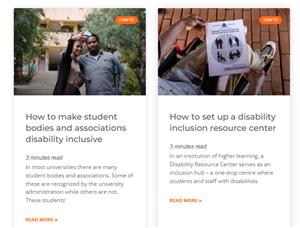
Making African universities and other learning institutes more disability-inclusive with a free web-based toolbox
Light for the World, Austria: Its CapAble platform provides tools and resources for disability inclusion in higher education. Gained over 30,000 users and 240,000 page views between 2021 and 2023.
CapAble, Uganda -
Music as an education and communication tool for students with Autism
The project is based on an educational/didactical approach, employing elaborate games with music to implement Inclusive Education. Without the need for words, music includes emotional, mental, and physical dimensions – all of which contribute to the well-being and progress of children with autism.
Primary School Via dei Boschi, Italy -
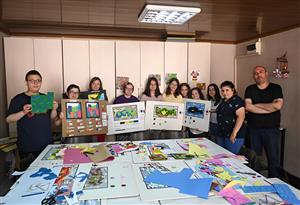
Accessible education systems with audio and tactile inclusive materials
Bergama Belediyesi Rahmi Yesilsoy Engelliler Merkezi, Turkey: Produces tactile educational materials for visually impaired children. Materials used by 3,000 students and teachers in Turkey, and over 2,600 in Africa and Pakistan.
Accessible Education Systems, Turkey